Scope and format
Orchids are outstanding models of biological interactions, due to their strong and diverse links with pollinators and mycorrhizal fungi, which are required for their germination. Biological interactions have strongly shaped the life cycle, reproductive biology and morphology of orchids. In addition, both kinds of interactions range from mutualistic to exploitive in mycoheterotrophic or pollinator-deceiving species. Indeed, the 24000 species of this family have already attracted a large number of research programs.
Many tools have recently been applied to the study of orchid interactions, such as chemical ecology, stable isotopes, high-throughput sequencing and in vitroexperimental designs, and data from tropical ecosystems are now increasingly published. A wide spectrum of conceptual evolutionary frameworks, such as general evolutionary theories on mutualism and plant distribution, as well as robust phylogenies are now available, but still poorly utilised in orchid research.
The key aim of this symposium is to improve the links between theory and field work, and also the integration of studies focusing on pollinators and mycorrhizal fungi, at physiological or ecological levels. In addition to this, we hope that the meeting will promote the exchange of methods and results and make it clear that orchid research can contribute to our general understanding of biological interactions and their evolutionary consequences.
The symposium took place over three days from 14 – 16 May, 2013 at the University of Calabria, Italy. Nineteen invited talks formed the basis of discussion at what was a relatively small meeting (120 participants). The talks were given on the first two days and on the final day there was be a field trip to a typical orchid habitat in Southern Italy.
Reports
A cluster of papers highlighting the use of orchids as models to investigate the ecology and evolution of biological interactions was published in Volume 202, Issue 2 of New Phytologist. Click here to see the list of associated papers.
Organising committee
Salvatore Cozzolino, Università "Federico II", Napoli, Italy
Giuseppe Pellgrino, Università della Calabria, Cosenza, Italy
Lee Taylor, University of Alaska at Fairbanks, USA
Marc-André Selosse, Université de Monpellier, France

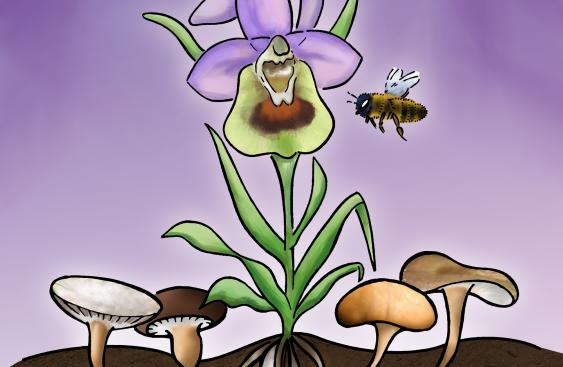

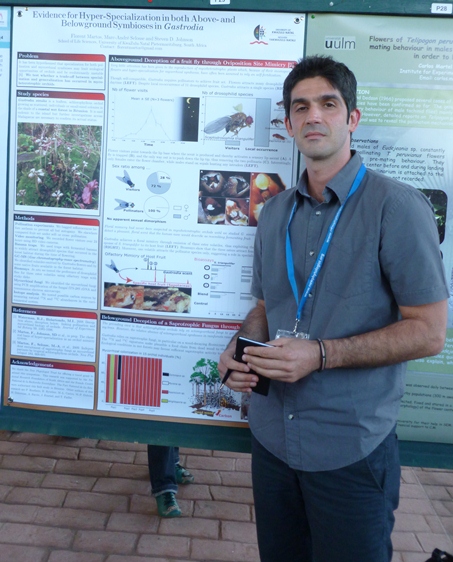 Congratulations to Florent Martos (University of Kwazulu-Natal, South Africa) who was the winner of the New Phytologist poster prize for his poster 'Evidence for extreme specialization in both above- and belowground symbioses in Gastrodia (Orchidaceae)'.
Congratulations to Florent Martos (University of Kwazulu-Natal, South Africa) who was the winner of the New Phytologist poster prize for his poster 'Evidence for extreme specialization in both above- and belowground symbioses in Gastrodia (Orchidaceae)'.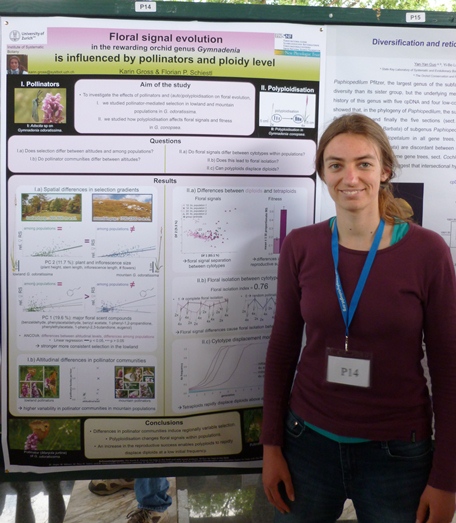 Runner-up Karin Gross (University of Zurich, Switzerland): ‘Floral signal evolution in the rewarding orchid genus Gymnadenia is influenced by pollinators and ploidy level.’
Runner-up Karin Gross (University of Zurich, Switzerland): ‘Floral signal evolution in the rewarding orchid genus Gymnadenia is influenced by pollinators and ploidy level.’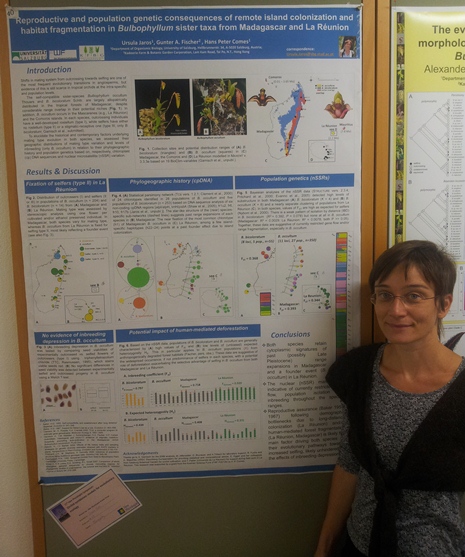 Runner-up Ursula Jaros (University of Salzburg, Austria): ‘Reproductive and population genetic consequences of remote island colonization in Bulbophyllum occultum THOUARS (Orchidaceae) from Madagascar and La Réunion’
Runner-up Ursula Jaros (University of Salzburg, Austria): ‘Reproductive and population genetic consequences of remote island colonization in Bulbophyllum occultum THOUARS (Orchidaceae) from Madagascar and La Réunion’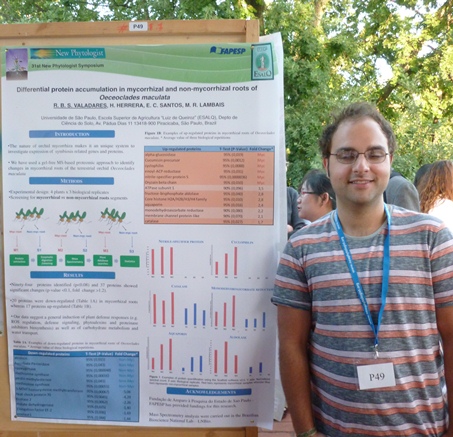 Runner-up Rafael Valadares (Universidade de São Paulo, Brazil): ‘Differential protein accumulation in mycorrhizal and non-mycorrhizal roots of Oeceoclades maculate’
Runner-up Rafael Valadares (Universidade de São Paulo, Brazil): ‘Differential protein accumulation in mycorrhizal and non-mycorrhizal roots of Oeceoclades maculate’